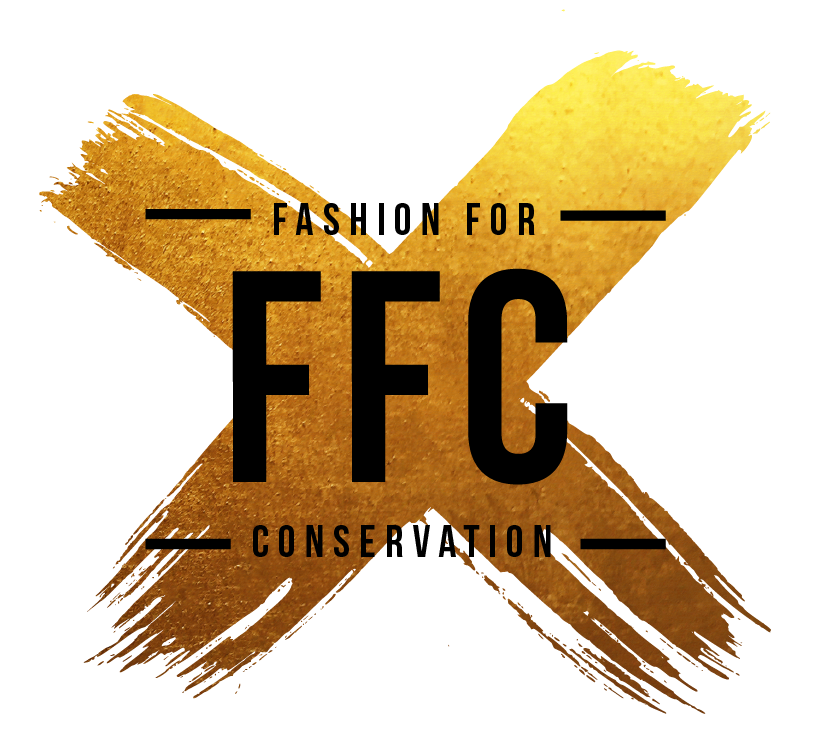Log in your account

Fashion for Conservation Welcomes ARC

Fashion has long been a severely wasteful and hurtful industry, from decimating acreage and water supplies, to hunting some animals to extinction for their aesthetically pleasing skin and hides. Two founders came together to say, “Yes, fashion has been this way but no, fashion does not need to stay this way.”
Through a combination of Ava J. Holmes’ rock n’ roll upbringing and fashion experience, with Samantha Zwicker’s life’s work of advocating for endangered species and a lifetime spent in the Amazon Rainforest earning her Doctorate in Ecology, Fashion for Conservation (FFC) was born to bridge the seemingly idiosyncratic ideals of, you guessed it, fashion and conservation.
FFC challenged our reality by partnering with high-end designers as well as conservation organizations to raise awareness and pursue justice on behalf of our Mother Earth. Designers crafted pieces inspired by wildlife to benefit organizations like the African Wildlife Fund, National Geographic, and the Whitley Fund for Nature. The nature-inspired RTW and couture pieces captivated and informed audiences around the world as FFC took to the global fashion shows in Ibiza, London, Berlin, Paris, and Milan, just to name a few. Since high-end fashion often trickles down into everyday consumer clothing, the runway was our educational platform to raise awareness for the ongoing preservation of our planet to important people in the fashion community. Once they have changed, the rest of society will follow suit.
But we can’t only depend on them to make changes. 2019 found Fashion for Conservation under new leadership and a new sense of purpose. While RTW and couture fared well in print and photography, it was not fiscally accessible for many. We pivoted instead to supporting the women that Samantha worked with, lived with, who showed day in and out how they gave back to their natural surroundings and families, by living in unfiltered harmony with the rainforest. Through provided microloans, these women borrow equipment to hand craft Artisan goods – knapsacks, bags, and jewelry, specifically. Due to the nature of their remote, far flung location in Madre de Dios, they are unable to interact with any consumers, thereby limiting their economic prosperity to only tourists.
Now, more than ever, FFC sees the urgent gravity of giving these women a voice and an economy through which they may earn financial independence. We partner with local boutiques to promote and sell these products, under the FFC umbrella. As of May 2020, we have officially branched off the Artisan arm from the RTW and couture concept, heralding ‘ARC’, which stands for ‘Artisan Realized Craft’. We hope the extension of ARC will prove fruitful not in economy, but in the messaging of hope, financial independence, and appreciation for handcrafted labor. Our Artisan products, shown in our shop are one of a kind and reasonably priced, with proceeds returned to the women who make them. May our deliberate pivot to the natural earth inspire you and the industry to do the same!
Related Articles
The Environmental Impact of Air Conditioners
International Nelson Mandela Day
National Tattoo Day
Latest News
-
 The Environmental Impact of Air Conditioners
August 13, 2021
The Environmental Impact of Air Conditioners
August 13, 2021
-
 Eco-Friendly Summer Activities
August 6, 2021
Eco-Friendly Summer Activities
August 6, 2021
-
 World Ranger Day
July 30, 2021
World Ranger Day
July 30, 2021
-
 International Nelson Mandela Day
July 19, 2021
International Nelson Mandela Day
July 19, 2021
